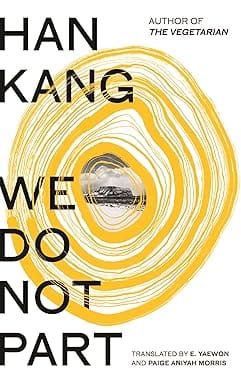- Contemporary Fiction
- Contemporary Fiction
- Children
- Children
- Comics & Graphic Novels
- Comics & Graphic Novels
- Non-Fiction
- Non-Fiction
- Fiction
- Fiction
Today, more than ever before, the quality of a country’s governance and leadership determines whether it will succeed or fail.
The world over, there are nations with roughly the same populations, the same resources, the same potential; yet some will flourish while others flounder. Why? Quite simply, some have leaders who understand the principles of good government, and some don’t.
Tony Blair learnt the precepts of governing the hard way: by leading a country for over ten years. In that time he came to understand that there were certain key characteristics of successful government that he wished he had known when he started. Since then, he has seen how, though circumstances and contexts differ enormously, the challenges of governing are basically the same in any nation, whatever its stage of development. Not just that: there are also decades of political experience on which modern leaders can draw. Unfortunately, while practical guides to other professions abound, governing is treated as a dimension of politics, not as an art and science in its own right, and practical, non-partisan advice is consequently hard to find.
Now Tony Blair has written the manual on political leadership that he would have wanted back in 1997, sharing the insights he has gained from his personal experience and from observing other world leaders at first hand, both while he was in office and since, through his Institute’s work with political leaders and governments globally.
Written in short, pithy chapters, packed with examples drawn from all forms of political systems from around the world, the book answers the key questions: How should a leader organise the centre of government and his or her own office? How should he or she prioritise and develop the right plan and hire the right personnel, cope with unforeseen events and crises, and balance short-term wins with long-term structural change? What’s the best way to deal with an obstructive or inert bureaucracy, to attract investment, to reform healthcare or education, and to ensure security for the citizen? And how should governments harness the massive opportunities of the 21st- century technological revolution?
About the Author
Tony Blair was born in Edinburgh in 1953. He became MP for Sedgefield in 1983, leader of the Labour Party in 1994, and was prime minister of the United Kingdom from May 1997 to June 2007. Since leaving office Blair has spent most of his time working on three areas: supporting governments to deliver effectively for their people, working for peace in the Middle East, and countering extremism. In 2016, he established the Tony Blair Institute for Global Change which aims to help political leaders build open, inclusive and prosperous societies in an increasingly interconnected world. In particular, the foundation works with governments across Africa to help them implement their vis
On Leadership Lessons For The 21st Century
SIZE GUIDE
- ISBN: 9781529151527
- Author: Tony Blair
- Publisher: Hutchinson Heinemann
- Pages: 320
- Format: Paperback
Book Description
Today, more than ever before, the quality of a country’s governance and leadership determines whether it will succeed or fail.
The world over, there are nations with roughly the same populations, the same resources, the same potential; yet some will flourish while others flounder. Why? Quite simply, some have leaders who understand the principles of good government, and some don’t.
Tony Blair learnt the precepts of governing the hard way: by leading a country for over ten years. In that time he came to understand that there were certain key characteristics of successful government that he wished he had known when he started. Since then, he has seen how, though circumstances and contexts differ enormously, the challenges of governing are basically the same in any nation, whatever its stage of development. Not just that: there are also decades of political experience on which modern leaders can draw. Unfortunately, while practical guides to other professions abound, governing is treated as a dimension of politics, not as an art and science in its own right, and practical, non-partisan advice is consequently hard to find.
Now Tony Blair has written the manual on political leadership that he would have wanted back in 1997, sharing the insights he has gained from his personal experience and from observing other world leaders at first hand, both while he was in office and since, through his Institute’s work with political leaders and governments globally.
Written in short, pithy chapters, packed with examples drawn from all forms of political systems from around the world, the book answers the key questions: How should a leader organise the centre of government and his or her own office? How should he or she prioritise and develop the right plan and hire the right personnel, cope with unforeseen events and crises, and balance short-term wins with long-term structural change? What’s the best way to deal with an obstructive or inert bureaucracy, to attract investment, to reform healthcare or education, and to ensure security for the citizen? And how should governments harness the massive opportunities of the 21st- century technological revolution?
About the Author
Tony Blair was born in Edinburgh in 1953. He became MP for Sedgefield in 1983, leader of the Labour Party in 1994, and was prime minister of the United Kingdom from May 1997 to June 2007. Since leaving office Blair has spent most of his time working on three areas: supporting governments to deliver effectively for their people, working for peace in the Middle East, and countering extremism. In 2016, he established the Tony Blair Institute for Global Change which aims to help political leaders build open, inclusive and prosperous societies in an increasingly interconnected world. In particular, the foundation works with governments across Africa to help them implement their vis
User reviews
NEWSLETTER
Subscribe to get Email Updates!
Thanks for subscribing.
Your response has been recorded.

India's Iconic & Independent Book Store offering a vast selection of books across a variety of genres Since 1978.
"We Believe In The Power of Books" Our mission is to make books accessible to everyone, and to cultivate a culture of reading and learning. We strive to provide a wide range of books, from classic literature, sci-fi and fantasy, to graphic novels, biographies and self-help books, so that everyone can find something to read.
Whether you’re looking for your next great read, a gift for someone special, or just browsing, Midland is here to make your book-buying experience easy and enjoyable.
We are shipping pan India and across the world.
For Bulk Order / Corporate Gifting
 +91 9818282497 |
+91 9818282497 |  [email protected]
[email protected]
Click To Know More
INFORMATION
QUICK LINKS
ADDRESS
Shop No.20, Aurobindo Palace Market, Near Church, New Delhi













